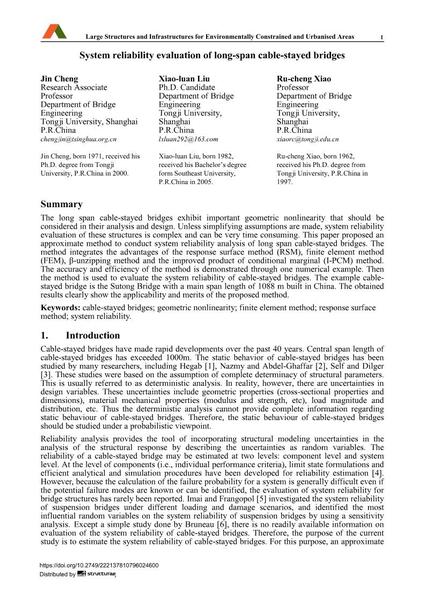System reliability evaluation of long-span cable-stayed bridges

|
|
|||||||||||
Détails bibliographiques
| Auteur(s): |
Jin Cheng
Xiao-Luan Liu Ru-Cheng Xiao |
||||
|---|---|---|---|---|---|
| Médium: | papier de conférence | ||||
| Langue(s): | anglais | ||||
| Conférence: | IABSE Symposium: Large Structures and Infrastructures for Environmentally Constrained and Urbanised Areas, Venice, Italy, 22-24 September 2010 | ||||
| Publié dans: | IABSE Symposium Venice 2010 | ||||
|
|||||
| Page(s): | 302-303 | ||||
| Nombre total de pages (du PDF): | 7 | ||||
| Année: | 2010 | ||||
| DOI: | 10.2749/222137810796024600 | ||||
| Abstrait: |
The long span cable-stayed bridges exhibit important geometric nonlinearity that should be considered in their analysis and design. Unless simplifying assumptions are made, system reliability evaluation of these structures is complex and can be very time consuming. This paper proposed an approximate method to conduct system reliability analysis of long span cable-stayed bridges. The method integrates the advantages of the response surface method (RSM), finite element method (FEM), β-unzipping method and the improved product of conditional marginal (I-PCM) method. The accuracy and efficiency of the method is demonstrated through one numerical example. Then the method is used to evaluate the system reliability of cable-stayed bridges. The example cable- stayed bridge is the Sutong Bridge with a main span length of 1088 m built in China. The obtained results clearly show the applicability and merits of the proposed method. |
||||
| Mots-clé: |
Ponts à haubans
|
||||

